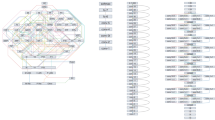Abstract
A newborn baby’s first move is to look for the nipples. This is an instinct for a baby to live, build strength and interact with the world. The interaction seems very similar to our users’ choosing a product for self-empowerment and productivity. However, most users are not babies, neither the majority of man-made products embody perfect affordances. How could user experience designers help to create an easy-to-learn product for specific user goals? This paper explores the answer via a balanced view on user-learning and machine-learning, and proposes designers’ early engagement in conceptual design together with full awareness of users’ learning constrains, so as to make users happier and thankful since initial contact with the product the designers created.
Chapter PDF
Similar content being viewed by others
References
Arnheim, R.: Art and Visual Perception: A Psychology of the Creative Eye, 3rd printing edn. University of California Press (1960)
Donald, N.: The Design of Everyday Things. Basic Books (September 17, 2002)
Donald, N.: Emotional Design: Why We Love (or Hate) Everyday Things. Basic Books (May 10, 2005)
Laurel, B.: Computer as Theatre. Addison Wesley Longman, Inc., Amsterdam (1993)
Levinger, G.: A social psychological perspective on marital dissolution. Journal of Social Issues 32(1), 21–47
McLuhan, M.: Understanding Media (Routledge Classics). Routledge (September 26, 2005)
Richard, D.: The Blind Watchmaker: Why the Evidence of Evolution Reveals a Universe Without Design. W.W. Norton (September 19, 1996)
老子 著, 陈忠 评译: 道德经. 出 版 社: 吉林文史出版社 (2006)
Author information
Authors and Affiliations
Editor information
Editors and Affiliations
Rights and permissions
Copyright information
© 2009 Springer-Verlag Berlin Heidelberg
About this paper
Cite this paper
Wang, D.X. (2009). Learn as Babies Learn: A Conceptual Model of Designing Optimum Learnability. In: Jacko, J.A. (eds) Human-Computer Interaction. New Trends. HCI 2009. Lecture Notes in Computer Science, vol 5610. Springer, Berlin, Heidelberg. https://doi.org/10.1007/978-3-642-02574-7_83
Download citation
DOI: https://doi.org/10.1007/978-3-642-02574-7_83
Publisher Name: Springer, Berlin, Heidelberg
Print ISBN: 978-3-642-02573-0
Online ISBN: 978-3-642-02574-7
eBook Packages: Computer ScienceComputer Science (R0)




